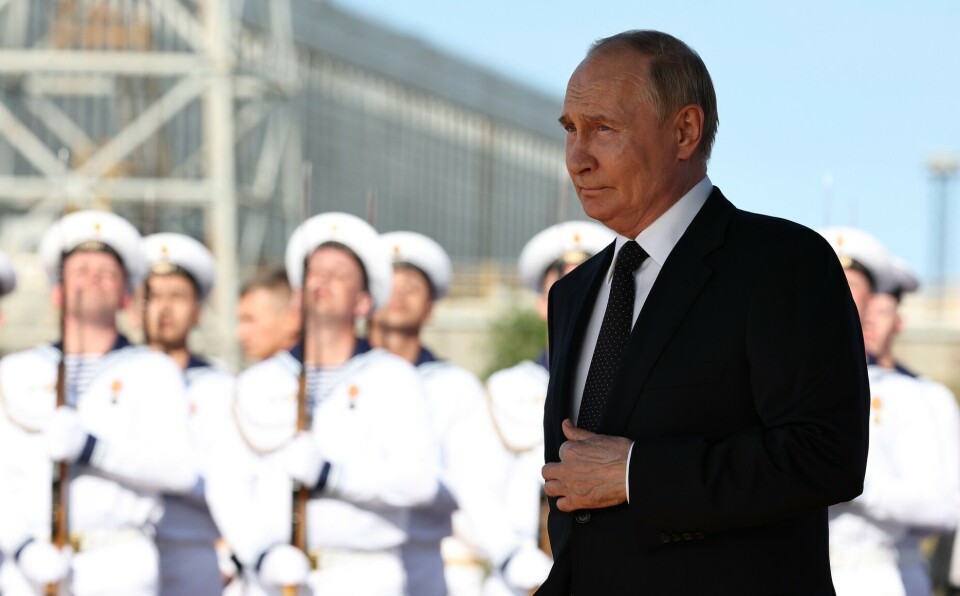OPINION

Peace in Ukraine and Putin’s Nightmares
Although Russian President Vladimir Putin is the only person who can end the war in Ukraine almost immediately, peace on the “Western Front” that he himself created is not necessarily just his free choice. The question is whether Putin and his circle of power can still afford a ceasefire with a neighboring country that they have plundered and destroyed – and to what extent. The answer is not only to be found in foreign policy. There are also important factors connected with structural aspects of the domestic regime.
The basis of Kremlin decision-making is Putin’s inviolability and a sense of security for him and his ruling group. It is not just about invulnerability from the outside world but also from the largely paralyzed, but still potentially dangerous, Russian society. For example, Putin cannot afford a proposal similar to that recently presented by Ukrainian President Volodymyr Zelensky: to try to exchange benefits and guarantees for his country for his own resignation. From Putin's perspective, the vision of peace with Ukraine appears as an expression of Russian, and by extension, Putin’s own weakness. A forced peace with an already hugely demonized enemy can hardly be sold at home as a successful "protection of Russia's interests."
Lessons from Clan Rule
It may also be too late for Putin to find a reliable successor himself to guarantee his own security, as his presidential predecessor Boris Yeltsin did when he left power. For Yeltsin, it was easier to hand over the presidency to Putin in exchange for his own inviolability and that of his loved ones. After all, he was not internationally accused of mass murder, child abductions, and other terrible crimes when he left the Kremlin.
After the Yeltsin clan and the Brezhnev clan, the Putin clan is the third political clan in the past 60 years when the clan style of rule, based not on family ties but on the sharing of power interests and goals, became one of the decisive tendencies in Soviet and Russian domestic politics. Neither Brezhnev nor Yeltsin managed to stabilize the Soviet or Russian situation in this way. And for the members of these clans, loyalty to the leader was not enough to ensure a carefree future.
They were always aware of the importance of their dependence on a strong leader, so much so that they clung to him for their own self-preservation until the last possible moment and did not seek his premature departure. But in the case of Brezhnev's entourage, the changed circumstances subsequently led to the suicide of the Soviet Union's Minister of Internal Affairs Nikolai Shchelokov, and apparently also of the KGB's First Deputy Chairman Semyon Tsvigun, whose death is still shrouded in mystery. In the case of Yeltsin, the clan was dissolved by Putin himself after the change of power, and there was no shortage of "mysterious deaths" in this case either.
Disrespect for predecessors
Respect for those no longer in power usually fades quickly in the Soviet and Russian political leadership. Not once has the successor of the supreme leader unconditionally supported the development of his predecessor's political legacy. Vladimir Lenin had the last Tsar Nicholas II killed. Joseph Stalin distanced himself from Lenin's policies, Nikita Khrushchev tried to radically distance himself from Stalin. Leonid Brezhnev rejected Khrushchev and Mikhail Gorbachev rejected Brezhnev. And Yeltsin then criticized Gorbachev's policies, and Putin criticized Yeltsin's policies. Each of the Soviet and post-Soviet leaders, with the exception of Lenin, was a clear product of the previous period and served his predecessor faithfully before distancing himself from him.
There is therefore no guarantee that Putin will be the one who would be worshipped by his successor in the event of a loss of power. To remain in the highest position as long as possible and to delay any criticism – and above all the possible sanctions associated with it – and thus make it impossible for Putin to leave his position, clearly seems safer than to risk that his successors might distance themselves from him during his lifetime. It is no coincidence that five of the seven highest leaders of the Soviet power system, of which Putin is a product and successor, did not give up power until their deaths.
Aggression instead of solutions
From the outside, the possibility of continued confrontations for Putin and his leadership elite in the absence of a constructive policy seems more predictable and therefore safer. Escalating tensions, spreading “patriotism” as Russian national chauvinism, demonizing enemies and exacerbating new conflict situations as a self-preservation strategy still works.
Especially considering that during a quarter of a century of his rule, Putin has not been able to use his authoritarian style to ward off the threat of Russia’s disintegration, which he seems to fear most after the collapse of the Soviet Union. He has already hinted that the decline of the Soviet Union could continue with the collapse of Russia under the influence of the “evil West”, which inspired the former Soviet republics with ideas of democracy.
The “West” is not bad for the Kremlin because it is preparing to attack Russia militarily. The West is bad because it is inherently pluralistic. It allows for different opinions that cannot be controlled from a single central point, and its unpredictability threatens the effectiveness of the cultural quarantine that dictatorships, including Putin's, have imposed on Russia. A ceasefire in Ukraine will not solve this threat, which is from Putin's perspective fatal.
Ukraine is a very serious problem for Putin, but nevertheless it is only a part of the problem and not the final one. Understanding this fact and continuing efforts to ensure solid and stable security guarantees for both Ukraine and the entire democratic world are crucial to finding a solution to the current situation.
-------------
A version of this text was previously published in Swedish in Dagens Nyheter.
















